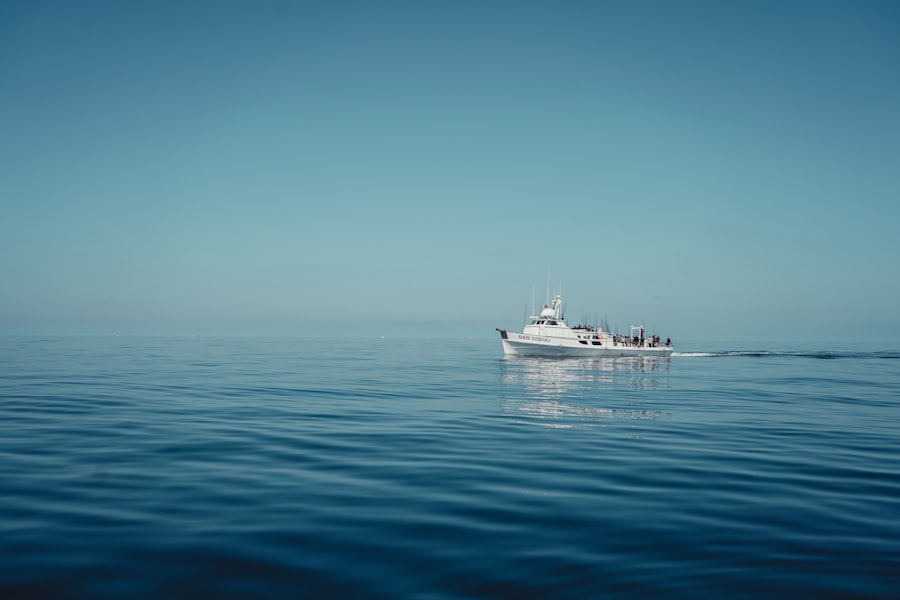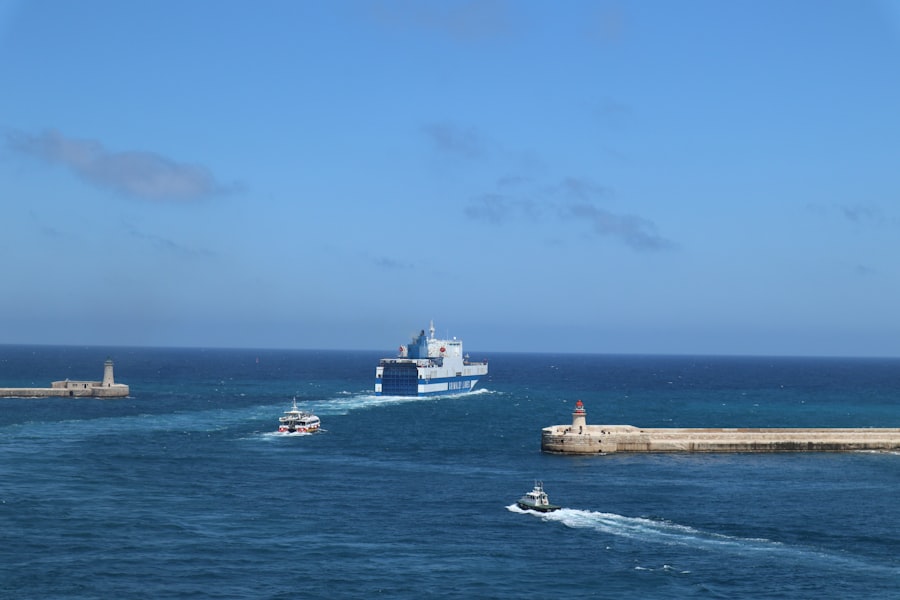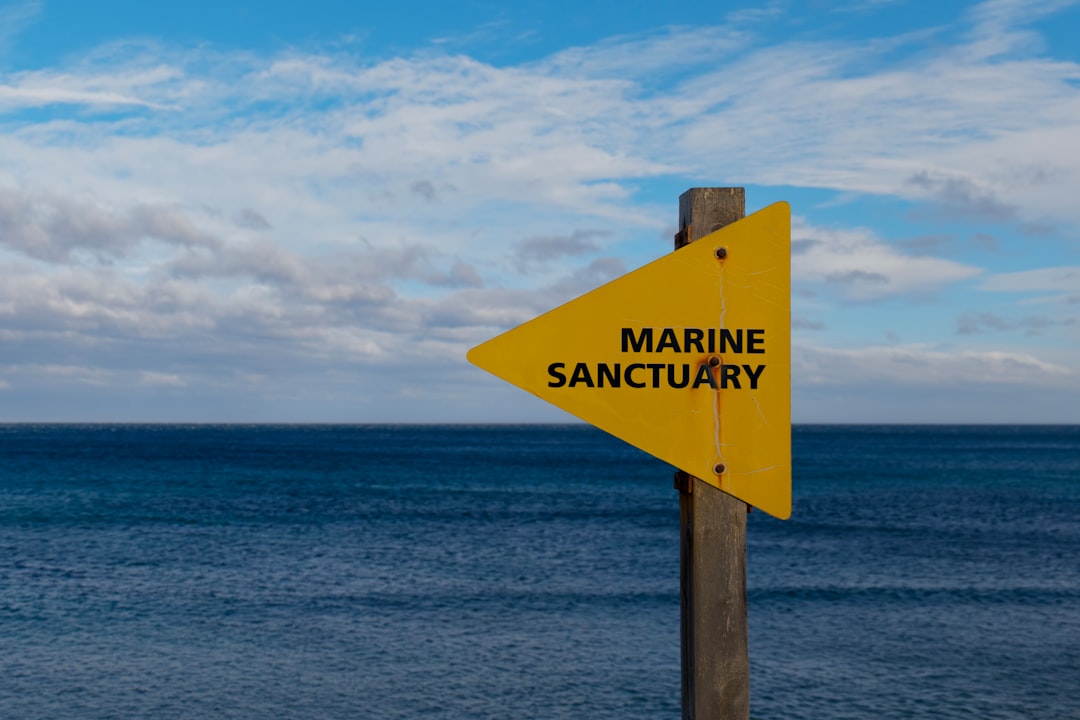In an increasingly interconnected world, the significance of maritime security has surged to the forefront of global concerns. As nations rely heavily on the oceans for trade, energy resources, and transportation, the security of these vital waterways has become paramount. The vast expanse of the world’s oceans serves as a conduit for approximately 90% of international trade, making the safeguarding of maritime routes essential not only for economic stability but also for national security.
The rise in global trade has led to heightened competition among nations, which in turn has intensified the need for robust maritime security measures. Moreover, the geopolitical landscape has evolved, with emerging powers asserting their influence over strategic maritime regions. This shift has prompted countries to reevaluate their maritime strategies and invest in naval capabilities to protect their interests.
The growing importance of maritime security is underscored by the increasing frequency of maritime disputes, territorial claims, and the need for cooperative frameworks to address shared challenges. As nations navigate these complexities, the imperative for comprehensive maritime security strategies becomes ever more critical.
Key Takeaways
- Maritime security is becoming increasingly important due to the economic impact of insecure seas and the role it plays in national defense.
- Insecure seas can have a significant economic impact, affecting global trade and leading to increased costs for businesses and consumers.
- Maritime security is crucial for national defense, as it helps protect a country’s borders and ensures the safety of its citizens.
- Threats to maritime security include piracy, environmental damage, and the potential for terrorist attacks.
- International cooperation is essential for effective maritime security, as it requires coordination between countries to address common threats and challenges.
The Economic Impact of Insecure Seas
The economic ramifications of insecure seas are profound and far-reaching. Disruptions in maritime trade due to piracy, territorial disputes, or environmental disasters can lead to significant financial losses for nations and businesses alike. Shipping companies face increased insurance premiums and operational costs when navigating through high-risk areas, which can ultimately translate into higher prices for consumers.
Furthermore, the instability caused by maritime insecurity can deter foreign investment, stifling economic growth in affected regions. Insecure seas also have a cascading effect on global supply chains. Delays in shipping routes can lead to shortages of essential goods, impacting industries ranging from manufacturing to retail.
The ripple effects of maritime insecurity extend beyond immediate financial losses; they can also undermine consumer confidence and disrupt market stability. As nations grapple with these challenges, it becomes evident that ensuring maritime security is not merely a matter of national interest but a crucial component of global economic health.
The Role of Maritime Security in National Defense

Maritime security plays a pivotal role in national defense strategies, serving as a first line of protection against potential threats. Nations recognize that their maritime domains are not only vital for trade but also for safeguarding sovereignty and territorial integrity. A strong naval presence can deter aggression from rival states and protect critical infrastructure such as ports and offshore energy installations.
As military capabilities evolve, navies are increasingly tasked with multifaceted roles that encompass humanitarian assistance, disaster response, and counter-terrorism operations. Furthermore, the integration of maritime security into national defense strategies fosters collaboration among various branches of the military and government agencies. This holistic approach ensures that resources are allocated efficiently and that responses to maritime threats are coordinated effectively.
By prioritizing maritime security within national defense frameworks, countries can enhance their resilience against emerging threats while simultaneously contributing to regional stability.
The Threats to Maritime Security
| Threat | Description | Impact |
|---|---|---|
| Piracy | Attacks on ships for robbery or kidnapping | Disruption of trade, danger to crew |
| Terrorism | Use of violence for political or ideological goals | Disruption of shipping, fear and instability |
| Smuggling | Illegal transportation of goods or people | Undermining legal trade, potential for violence |
| Illegal fishing | Unregulated or unreported fishing activities | Depletion of marine resources, economic impact on legitimate fishing |
The threats to maritime security are diverse and multifaceted, encompassing a range of challenges that require vigilant monitoring and proactive measures. Traditional threats such as state-sponsored aggression and territorial disputes continue to pose significant risks, particularly in strategically important regions like the South China Sea and the Arctic. Additionally, non-state actors have emerged as formidable threats, employing tactics such as cyberattacks on shipping infrastructure or engaging in illicit activities like smuggling and trafficking.
Environmental challenges also contribute to the erosion of maritime security. Climate change has led to rising sea levels and increased frequency of severe weather events, which can disrupt shipping routes and threaten coastal communities. Moreover, pollution and overfishing exacerbate tensions among nations vying for dwindling marine resources.
As these threats evolve, it becomes imperative for nations to adopt comprehensive strategies that address both traditional and emerging challenges to maritime security.
Piracy and Maritime Security
Piracy remains one of the most notorious threats to maritime security, with its roots tracing back centuries. In recent years, piracy has experienced a resurgence in certain regions, particularly off the coast of Somalia and in the Gulf of Guinea. These acts not only endanger the lives of seafarers but also disrupt global trade by creating chokepoints that shipping companies must navigate cautiously.
The economic impact of piracy extends beyond immediate ransom payments; it can lead to increased shipping costs and insurance premiums that ripple through global supply chains. Efforts to combat piracy have evolved over time, with international coalitions and naval forces collaborating to enhance maritime security in high-risk areas. Initiatives such as increased naval patrols, intelligence sharing, and capacity building for regional navies have shown promise in mitigating the threat of piracy.
However, addressing the root causes of piracy—such as poverty, political instability, and lack of governance—remains essential for achieving long-term solutions. By fostering stability in vulnerable regions, nations can contribute to a more secure maritime environment.
Environmental Security and the Seas

Environmental security is an increasingly critical aspect of maritime security that cannot be overlooked. The health of marine ecosystems is intricately linked to global stability and economic prosperity. Issues such as overfishing, marine pollution, and habitat destruction pose significant threats not only to biodiversity but also to the livelihoods of communities dependent on healthy oceans.
As nations grapple with these challenges, it becomes evident that environmental degradation can exacerbate tensions over resources and contribute to conflicts. Moreover, climate change poses an existential threat to maritime security by altering oceanic conditions and increasing the frequency of extreme weather events. Rising sea levels threaten coastal infrastructure and communities, while changes in ocean temperatures can disrupt fishing patterns and migratory routes for marine species.
Addressing environmental security requires a collaborative approach that transcends national borders, as the health of the oceans is a shared responsibility among all nations.
The Importance of International Cooperation in Maritime Security
In an era marked by complex global challenges, international cooperation is paramount for enhancing maritime security. No single nation can effectively address the myriad threats posed by piracy, environmental degradation, or geopolitical tensions alone. Collaborative frameworks such as regional partnerships and multilateral agreements play a crucial role in fostering information sharing, joint exercises, and coordinated responses to emerging threats.
Organizations like the International Maritime Organization (IMO) facilitate dialogue among member states to establish best practices and standards for maritime safety and security. Additionally, regional initiatives such as the Gulf of Aden Maritime Security Patrols exemplify how nations can work together to combat piracy and ensure safe passage for commercial vessels. By fostering a culture of cooperation and mutual support, countries can build resilience against maritime threats while promoting stability in shared waters.
Technological Advances in Maritime Security
Technological advancements have revolutionized the landscape of maritime security, providing innovative solutions to age-old challenges. The integration of satellite surveillance systems allows for real-time monitoring of shipping routes, enabling authorities to detect suspicious activities and respond swiftly to potential threats. Drones equipped with advanced imaging technology are increasingly being deployed for reconnaissance missions, enhancing situational awareness in high-risk areas.
Moreover, cybersecurity has emerged as a critical component of maritime security in an era where digital threats loom large. As shipping companies adopt digital technologies for navigation and logistics management, they become vulnerable to cyberattacks that could disrupt operations or compromise sensitive data. Investing in robust cybersecurity measures is essential for safeguarding maritime infrastructure against evolving threats while ensuring the integrity of global supply chains.
The Role of Maritime Security in Global Trade
Maritime security is intrinsically linked to global trade dynamics, serving as a cornerstone for economic prosperity. Secure shipping routes facilitate the smooth flow of goods across borders, enabling countries to engage in international commerce effectively. Conversely, disruptions caused by piracy or geopolitical tensions can lead to significant delays and increased costs that reverberate throughout global markets.
The importance of maritime security extends beyond immediate economic considerations; it also influences diplomatic relations among nations. Countries that prioritize maritime security demonstrate their commitment to upholding international norms and fostering stability in shared waters.
The Legal Framework for Maritime Security
The legal framework governing maritime security is complex and multifaceted, encompassing a range of international treaties and conventions designed to promote safe navigation and protect marine resources.
However, challenges remain in enforcing these legal frameworks effectively.
Disparities in national laws and varying levels of commitment among states can hinder collective efforts to address maritime security threats. Strengthening legal frameworks requires ongoing dialogue among nations to ensure compliance with international norms while adapting to emerging challenges such as climate change and technological advancements.
The Future of Maritime Security
The future of maritime security will undoubtedly be shaped by evolving geopolitical dynamics, technological innovations, and environmental challenges. As nations navigate an increasingly complex landscape, they must prioritize collaboration and adaptability in their approaches to maritime security. Embracing new technologies will be essential for enhancing situational awareness and responding effectively to emerging threats.
Moreover, addressing environmental concerns will require a concerted effort among nations to promote sustainable practices that protect marine ecosystems while ensuring economic viability. As global trade continues to expand, the imperative for robust maritime security will only grow stronger. By fostering international cooperation and investing in innovative solutions, nations can work together to create a safer and more secure maritime environment for generations to come.
Maritime security is a critical aspect of global trade and international relations, ensuring the safe and secure movement of goods across the world’s oceans. It encompasses a range of issues, from piracy and smuggling to environmental protection and the enforcement of international maritime law. For those interested in exploring more about the intricacies of maritime security, a related article can be found on MyGeoQuest. This article delves into various aspects of maritime security, providing insights into the challenges and strategies involved in maintaining secure maritime operations. You can read more about it by visiting this link.
WATCH NOW! Unlocking Disaster: 7 Choke Points That Could Fracture Our Connected World Overnight
FAQs
What is maritime security?
Maritime security refers to the measures taken to protect vessels, ports, and other infrastructure from threats such as piracy, terrorism, and smuggling.
Why is maritime security important?
Maritime security is important for ensuring the safety of vessels, crew, and cargo, as well as for maintaining the flow of international trade and commerce.
What are some common threats to maritime security?
Common threats to maritime security include piracy, armed robbery, terrorism, smuggling of drugs and weapons, and illegal fishing.
What are some measures taken to enhance maritime security?
Measures to enhance maritime security include the use of armed guards on vessels, the implementation of security protocols at ports, the use of surveillance technology, and international cooperation through organizations such as the International Maritime Organization (IMO).
How does maritime security impact international trade?
Effective maritime security is essential for maintaining the flow of international trade, as the majority of global trade is conducted by sea. Without adequate security measures, the risk of disruption to trade increases.
